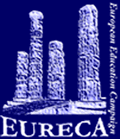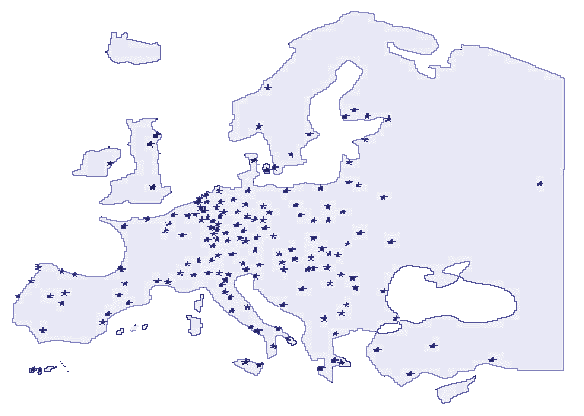
© Eeki
2003 |
| About AEGEE |
What is AEGEE? "I've been a member of AEGEE for only one year, but this
year changed myunderstanding of Europe. Before it was abstract,
now it is full of life! I metso many interesting people and got
to know so many different cultures and waysof thinking! I think,
many other students should start seeing Europe thatway." AEGEE (Association des Etats Généraux des Etudiants de l?Europe) is one of Europe's largest interdisciplinary student associations, which promotes a unified Europe, cross-border co-operation, communication, integration among students and strives to create an open and tolerant society of tomorrow. Founded in Paris in 1985, it takes its name from one of the birthplaces of democracy, the Aegean Sea, and the first parliament at the dawn of the French Revolution, Les Etats Généraux.
AEGEE brings together European students of all study disciplines with activities such as international conferences, seminars, exchanges, training courses and case study trips where they analyse a broad variety of topics from a European point of view, and discuss them with different experts. The focus of the association lies within four main Fields of Action: Active Citizenship, Cultural Exchange, Higher Education and Peace and Stability. Every year, AEGEE devotes itself to carrying out a project on a European-wide scale, the Yearplan project. In 2000 "Borderless Europe" promoted student mobility, in 2001 "Quo Vadis Europe?" dealt with the EU Enlargement and in 2002 "EURECA" will be conducted as "European Education Campaign". Furthermore AEGEE enables every year more than 2500 students to take part in the Summer University project, a platform for cultural exchange. By encouraging travel and mobility, stimulating thematic discussions in various Working Groups and organising common projects AEGEE attempts to overcome national, cultural and ethnic divisions and to create a vision of young people's Europe. AEGEE operates without any national level of organisation, and relies solely on the local branches and a European level that consists of Working Groups, Commissions, Project Teams and the Comité Directeur, the European Board of Directors. AEGEE has been co-operating on a regular basis with the European Commission for implementing projects and has been consulted on topics related to education, in particularly the SOCRATES program. AEGEE has Consultative Status in the Council of Europe and United Nations, Operational Status at UNESCO and is a member of the European Youth Forum. Among the organisations' patrons are: Mikhael Gorbachev, winner of the Nobel Peace Prize; Václav Havel, President of the Czech Republic; Jacques Santer, member of the European Parliament; and György Konrád, President of the German Academy of Arts. |
| Top |




 AEGEE is a non-governmental, non-profit organisation that
operates without being linked to any political party. A widely spread
student network of 17.000 members in more than 250 local
branches, so-called Antennae, provides the ideal platform where
young people from over 40 European countries can work together,
free from any national way of thinking.
AEGEE is a non-governmental, non-profit organisation that
operates without being linked to any political party. A widely spread
student network of 17.000 members in more than 250 local
branches, so-called Antennae, provides the ideal platform where
young people from over 40 European countries can work together,
free from any national way of thinking.